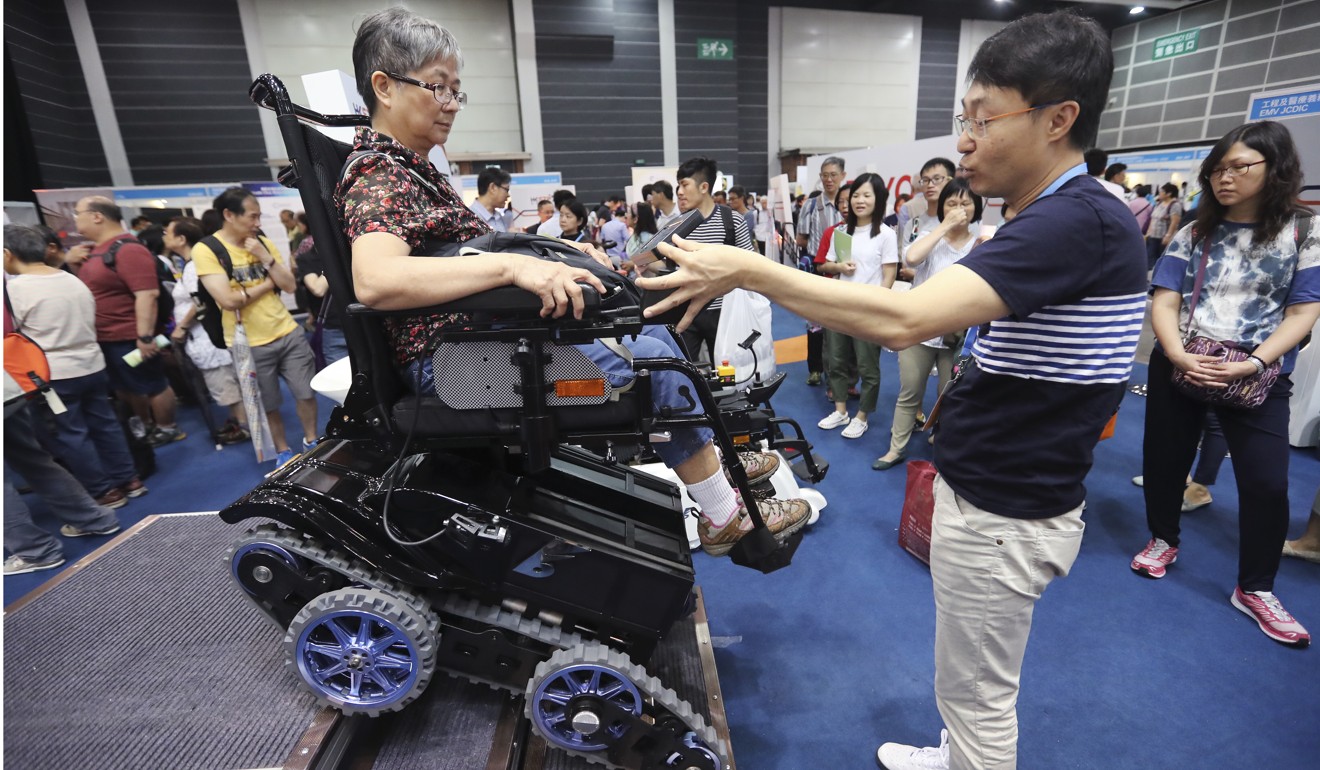
Hong Kong must first improve its elderly care before euthanasia can be discussed
Paul Yip and Michelle Leung say the tragic story of an 80-year-old man who killed his bedridden wife should spur soul-searching in Hong Kong about the shortfalls in our services for the elderly
Hong Kong’s ageing time bomb a cause for concern
No one should deny the need is serious. In Hong Kong, people over 65 have the highest suicide rate among all age groups; at 23.5 per 100,000 people, it is double the rate of the general population. Despite this, the problem has attracted little media attention, especially when compared with the attention on youth suicides.
All these problems have led some elderly people to see themselves as a burden to their family
Depression is a major factor contributing to a loss of meaning in life and the development of suicidal thoughts among older adults. Other factors include poor physical health, substandard living arrangements, a lack of social support and an inability to take care of themselves. The problem could be compounded if the duty of care falls on an elderly life partner who also needs help.
All these problems have led some elderly people to see themselves as a burden to their family.
Our government must provide the necessary support.
In 2014, Hong Kong’s chief executive initiated a study to identify elderly needs, aimed at achieving “ageing in place”, or moving towards community-based care, as opposed to residential homes. Two years later, an Elderly Services Programme Plan was unveiled. The report showed that many elderly people and their family still preferred subsidised residential care services to community care services, as it was not safe for the elderly people to be left home alone. Yet, the current wait for these services in Hong Kong is about one to two years.
Watch: Why a nonagenarian Hong Kong caretaker feels longevity is a curse
Actually, ageing in place is the more pragmatic option, especially in view of the acute shortage of institutional care places. But this could work only if the necessary support services and infrastructure are in place. At the moment, there is a disconnect between the policy agenda and actual service provision.
Green light for plan allowing more Hongkongers to ‘age in place’

Hong Kong must not miss out on tech revolution for the elderly
To improve the quality of life for the elderly, we need to provide an age-friendly and creative environment, and promote universal health care and lifelong learning. Hong Kong was rated outstanding in access to public transport and physical safety. But more could be done to improve psychological well-being and social connections in the elderly community. This suggests it is vital to help the elderly strengthen their social networks.
We must encourage an age-friendly environment in Hong Kong. This means making long-term care services, palliative care and day-care units in homes more available. Education on ageing should also be promoted.
As individuals, we should also do our part to foster a truly inclusive society. By working together, we will make it possible for people to age gracefully in Hong Kong and live out their lives with dignity.
The tragic case of the 80-year-old man has raised the difficult question of euthanasia in some quarters. It is an option that a society should discuss, but not before inadequacies in elderly services have been fully addressed. Only then will we have an environment that is mature enough to discuss euthanasia. Otherwise, resorting to euthanasia would seem to be an easy way out.
Paul Yip is director of, and Michelle Leung is a project officer in, the Centre for Suicide Research and Prevention at the University of Hong Kong

